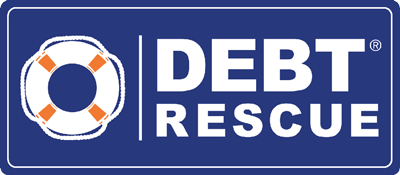The current economic crisis we are experiencing has sent living costs skywards and left wages stagnating. It’s also sent the annual inflation rate surging from 3.5 per cent in Quarter 4 2021 to 5.1 per cent in Q1 of 2022.
Even if you haven’t been watching the news, you would have felt the pinch. According to the latest Canstar 2021 Consumer Pulse Report, groceries (14 %), petrol (11%) and rent (10%) are the top everyday costs keeping us awake at night.
To combat exploding inflation, the Reserve Bank of Australia (RBA). recently announced its first interest rate hike since 2010, from 0.1 to 0.35 per cent. This means your monthly home loan repayments may also rise by $118 on average.
If you’re already struggling to pay your bills, rather than taking on more bad debt, one way to ease the pressure is through refinancing. But is refinancing a good option for you?
What is refinancing and what are the benefits?
Refinancing means replacing your existing mortgage with a brand-new one. This new home loan would have a different interest rate, monthly payment and term length and be used to pay off your existing loan
The main benefits of refinancing include:
Locking in a better interest rate
If you’re currently overextended and your home loan interest rate is set to go up, refinancing with a new mortgage and locking in a lower interest rate will reduce your monthly repayments. It can also potentially help you pay off your loan sooner.
It might not be worth it, if you only took out a mortgage last year when interest rates were still low. But if you took your mortgage out years ago, it’s a promising option.
Longer repayment terms
You can also reduce your monthly repayments by refinancing to a new home loan which allows you to increase your mortgage term. This spreads out the payments over a longer period of time, for example, from 20 years to 30 years.
While it means you’ll be paying it back for longer, the pay-off in the short term may be worth it.
Tapping into your home equity
If the cash or equity in your home has risen since you bought it, you may be able to tap into this money with a special type of refinancing: a cash-out refinance loan.
A cash-out refinance loan lets you take out a mortgage greater than the amount you still owe. You can then use this to pay off mounting debts. As a general rule, you can’t receive more than 80 per cent of your home’s value in cash.
Getting rid of lenders mortgage insurance
If you had less than a 20 per cent deposit when you bought your home, you’re probably paying lenders mortgage insurance (LMI).
If you’ve already reached 20 per cent equity, you may be able to cancel it. If you haven’t received 20 per cent, refinancing may cancel it if the new mortgage is less than 80 per cent of your home’s value.
What are the cons of refinancing?
Despite the many benefits, there are several cons to refinancing that could cost you – not ideal when you’re trying to pay off debt.
Break and exit costs on existing mortgage
The first is the break or exit costs you may have to pay to get out of your existing mortgage. Break costs on fixed home loans can be many thousands of dollars. Meanwhile, exit fees (on loans taken out before July 2011) can be between $0 and $7,000.
Set up and account making fees
On top of this, you may also have setup and account-making fees for your new refinanced mortgage to factor in. According to Finder, the average up-front fee on home loans is currently sitting at $686. But depending on the value of your home, it could be much higher.
Extended interest period
In addition to the above, increasing your term length from 20 to 30 years (or 10-15) means you’ll pay more interest over that extended period. This may concern you, or again, it may be worth the trade-off to get you through the now.
Alternative solutions to refinancing
If you weigh up the pros and cons and decide that refinancing isn’t going to work for you and your current situation, the good news is that you have several other options available to help lighten your monthly payments and reduce the stress.
Home equity loan or HELOC
Home equity loans and home equity lines of credit (HELOC) let you borrow against the equity in your property – if you have it. They’re both types of second mortgages.
With a home equity loan, you get a lump sum amount based on the difference between your home’s current market value and what you still owe on your mortgage.
A HELOC, on the other hand, works more like a credit card. A lender gives you a borrowing limit based on your home equity, and you can borrow from that line of credit as needed. The good thing is that you only pay interest on what you borrow.
The downside of home equity loans and HELOCs is that your home could be sold if your debt isn’t paid off. Plus, if real estate values decrease, you could end up owing more than your home is worth.
Debt consolidation (personal loan)
If you’re struggling with multiple debts, including credit cards and loans with different terms and rates, and don’t have equity in your home, debt consolidation can be an excellent alternative to refinancing.
Debt consolidation involves combining all these debts into a single personal loan with one monthly repayment. This option enables you to reduce interest by paying out high-interest debts, increasing your cash flow, removing excess fees, and simplifying your payments.
Use our debt consolidation calculator to help work out how you could combine your unsecured debts into one affordable amount.
If you go down this route, be careful that you don’t see freed up credit as an excuse to start spending again. You should also bear in mind that you may pay more over time due to interest over a longer period. Your credit score can also be damaged if you don’t keep up with repayments.
Bankruptcy
If your financial situation has become overwhelming, and you’ve explored all other viable options, bankruptcy may be your best option.
Bankruptcy is a legal process that releases you from your unsecured debts, allowing you to make a fresh start. While bankruptcy has a bad rap and some notable consequences, the positives typically outweigh the negatives.
The main benefit of bankruptcy is that it provides immediate relief from the majority of your debts. It also prevents you from being chased by creditors and protects some of your property.
The downsides include that your credit rating will be affected for seven years, and your name will have a black mark against it, affecting other areas of your life.
Don’t wait to make your decision
If you’re at a point where you need extra finance to get by, don’t wait. With interest rates and inflation looking bleak for the foreseeable future, things will only worsen before they get better. So, act now and seek help.
Are you struggling financially and considering refinancing to take back control? Get in touch with our team of debt solution specialists today on 1800 560 557 for professional, non-judgemental support and advice. We can help you decide if refinancing or another solution is best for you.
-137x60px.png)




